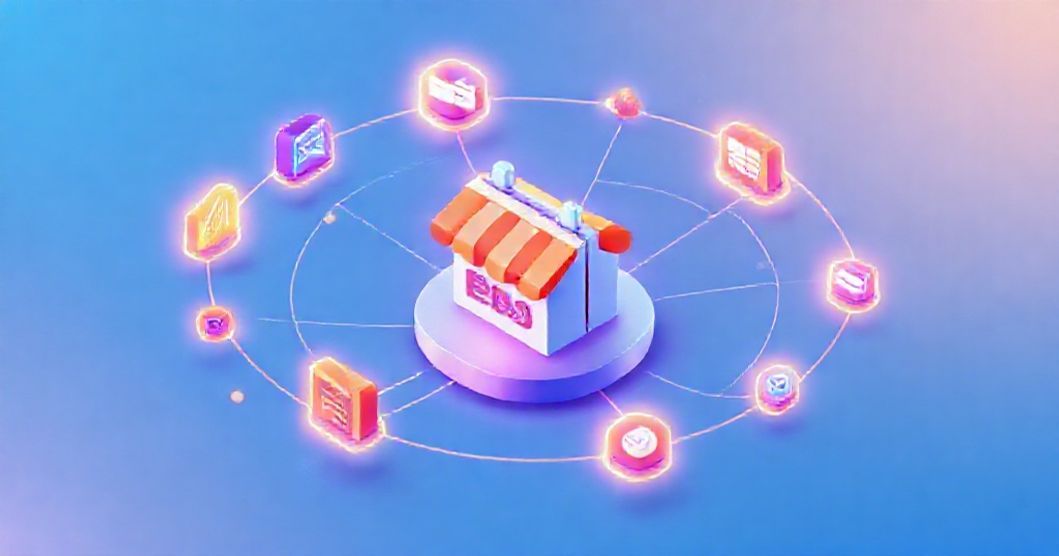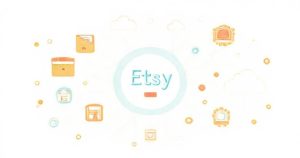For many creative entrepreneurs, Etsy provides an invaluable platform to showcase unique products and connect with a global audience. As an Etsy shop grows, managing daily operations can become increasingly complex and time-consuming. This is where strategic Etsy integrations become indispensable tools. These powerful software solutions are designed to connect your Etsy store with other essential business applications, automating various tasks and streamlining workflows. By thoughtfully adopting these integrations, sellers can significantly enhance efficiency, reduce manual errors, and dedicate more time to creativity and business growth, ultimately leading to a more profitable and sustainable venture.
Understanding Etsy Integrations: Tools for Enhanced Efficiency
Etsy integrations are third-party applications or services that link directly with your Etsy shop’s data and functionalities. This connectivity allows for seamless data exchange and automation across different platforms. Instead of manually transferring information between your Etsy store, shipping software, or accounting tools, integrations handle this process automatically. This automation is crucial for modern e-commerce, ensuring that inventory levels are always accurate, orders are processed swiftly, and customer communications are consistent, all contributing to a professional and reliable seller experience on the Etsy platform.
Why Etsy Sellers Benefit from Strategic Integrations
The primary advantage of implementing Etsy integrations lies in their ability to save time and increase operational accuracy. Small business owners often wear multiple hats, from product creation to customer service and bookkeeping. Integrations reduce the burden of repetitive administrative tasks, allowing sellers to focus on product development, marketing, and customer engagement. By minimizing the potential for human error in data entry and ensuring real-time synchronization of information, these tools empower Etsy sellers to manage their businesses more effectively and scale operations with greater ease and confidence.
Essential Integration Categories for Etsy Shops
To truly unlock the potential of your Etsy business, understanding the various types of integrations available is key. Each category addresses specific operational needs, offering tailored solutions to common challenges faced by online sellers. By strategically combining different integrations, Etsy shop owners can build a cohesive and highly efficient ecosystem around their core business. This comprehensive approach ensures that every aspect of the selling process, from product listing to post-sale support, is optimized for peak performance and customer satisfaction, reinforcing your brand’s reliability.
Automating Inventory and Order Management
Managing inventory across multiple sales channels can be a significant challenge for Etsy sellers. Inventory and order management integrations centralize all product data, tracking stock levels in real-time and automatically updating quantities as sales occur. These tools prevent overselling, streamline order processing, and consolidate customer information from all platforms into one accessible dashboard. This ensures that every order is fulfilled accurately and efficiently, improving both seller productivity and buyer satisfaction. Effective inventory management is a cornerstone of sustainable growth for any Etsy business.
Streamlining Shipping and Fulfillment Processes
Shipping is a critical component of customer satisfaction in e-commerce. Etsy integrations for shipping automate the creation of shipping labels, compare carrier rates to find the most cost-effective options, and provide automated tracking updates to customers. These tools often integrate with major shipping carriers, offering features like bulk label printing and scheduled pickups. By reducing the time spent on manual shipping tasks, sellers can process orders faster, improve delivery times, and enhance the overall purchasing experience. This efficiency directly impacts customer loyalty and positive reviews.
Simplifying Accounting and Financial Tracking
Keeping accurate financial records is paramount for any business, and Etsy shops are no exception. Accounting integrations link directly with your Etsy sales data, automatically categorizing transactions, tracking expenses, and generating financial reports. This simplifies bookkeeping, tax preparation, and provides clear insights into profitability. Examples include connecting to popular accounting software, enabling sellers to monitor their financial health without extensive manual data entry. Understanding your finances is crucial for making informed decisions about pricing, investments, and growth strategies within your Etsy business.
Expanding Reach with Multichannel E-commerce Platforms
Many Etsy sellers eventually seek to expand their reach beyond a single platform. E-commerce platform synchronization integrations allow you to seamlessly manage product listings, inventory, and orders across Etsy and other platforms like Shopify or WooCommerce. This multichannel approach broadens your customer base without multiplying your administrative workload. Centralized management ensures consistency in product information and pricing, offering a unified shopping experience regardless of where a customer makes a purchase. This strategic expansion can significantly increase sales volume and brand visibility for your Etsy shop.
Enhancing Customer Engagement with CRM and Marketing Tools
Building strong customer relationships is vital for repeat business and brand advocacy. Customer Relationship Management (CRM) and marketing integrations for Etsy help sellers manage customer interactions, automate email campaigns, and analyze purchasing behavior. These tools can facilitate personalized outreach, send abandoned cart reminders, and nurture customer loyalty. By understanding customer preferences and communicating effectively, sellers can create a more engaging shopping experience, leading to higher customer retention rates and improved long-term profitability for their Etsy store.
Optimizing Print-on-Demand and Custom Production Workflows
For sellers offering custom or print-on-demand products, specialized integrations automate the production and fulfillment process. When an order is placed on Etsy, these integrations automatically send the design and order details to a print provider or manufacturer. This eliminates manual order submission, reduces production errors, and speeds up delivery times. Integrating these services allows Etsy sellers to expand their product catalog without holding physical inventory, minimizing risk and optimizing cash flow, which is particularly beneficial for emerging and growing businesses.
Leveraging Analytics for Data-Driven Decisions
Beyond transactional integrations, robust analytics integrations provide Etsy sellers with deeper insights into their shop’s performance. These tools gather and interpret data on sales trends, customer demographics, popular products, and marketing effectiveness. By visualizing this information through intuitive dashboards, sellers can identify growth opportunities, optimize pricing strategies, and make informed decisions about product development and marketing campaigns. Understanding your data is a powerful asset that can drive strategic adjustments and significantly impact the overall success and future direction of your Etsy business.
Key Considerations When Selecting Etsy Integration Solutions
Choosing the right Etsy integrations requires careful consideration of several factors. Evaluate your specific business needs, the features offered by different integration tools, and their compatibility with your existing systems. Pricing structures vary widely, from free basic plans to subscription fees ranging from approximately $10 to $100+ per month, depending on functionality and usage. Prioritize integrations that offer excellent customer support, clear documentation, and a user-friendly interface. A thorough assessment ensures you invest in tools that genuinely enhance efficiency and provide a strong return on investment for your Etsy shop.
Maximizing Profitability: Realizing the Value of Integrations
The true value of Etsy integrations extends beyond mere convenience; they are powerful drivers of profitability. By reducing manual labor, preventing costly errors, and optimizing various operational aspects, integrations directly contribute to a healthier bottom line. Sellers can minimize overhead costs, improve efficiency to handle larger order volumes, and enhance the customer experience, leading to higher conversion rates and repeat purchases. Strategic integration adoption transforms an Etsy shop into a more robust, scalable, and ultimately more profitable enterprise, ready to meet market demands.
Conclusion: Building a Robust and Scalable Etsy Business
Etsy integrations offer a transformative pathway for sellers looking to scale their businesses and reclaim valuable time. From automating inventory and shipping to streamlining accounting and customer relations, these tools are essential for building a resilient and efficient operation. By carefully selecting and implementing the right integrations, Etsy shop owners can reduce stress, minimize errors, and focus on the creative endeavors that make their products unique. Embracing these technological solutions is a strategic investment in the long-term success and continued growth of any Etsy business, positioning it for enduring prosperity.






